Meet the new faculty in the Maxwell Becton College of Arts and Sciences
Get to know the new faculty members in the Maxwell Becton College of Arts and Sciences!
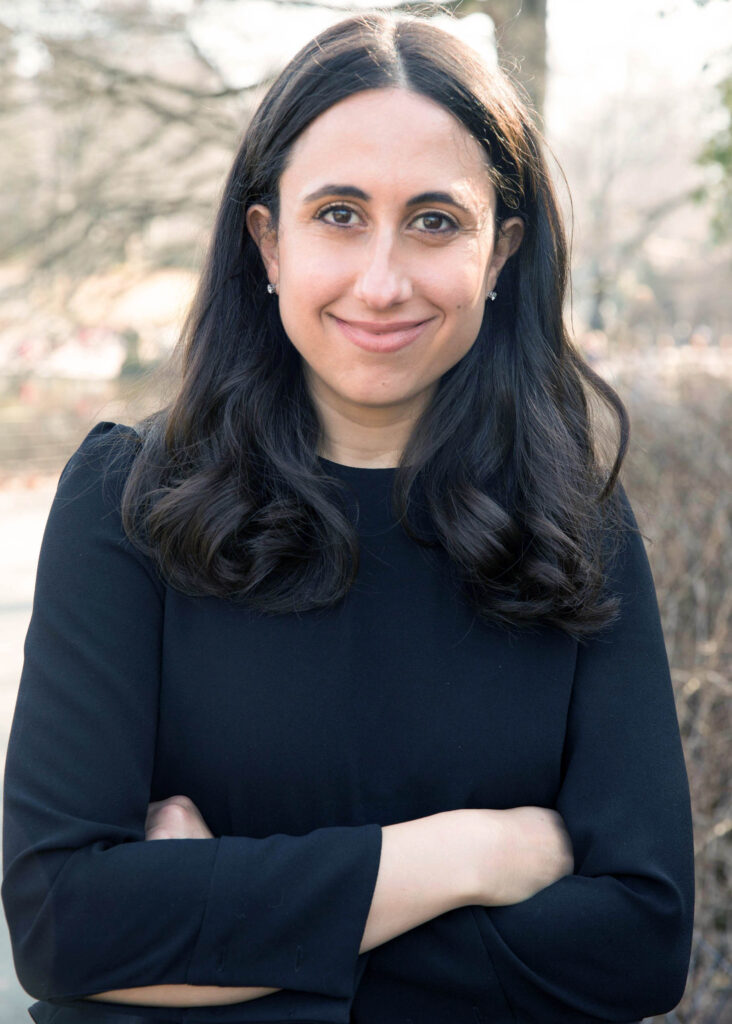
FDU: What brought you to FDU?
Kara Alaimo: The opportunity to create new programs in social media. Students in the B.A. in Communication program now have the opportunity to choose a concentration in social media and students in other programs can minor in social media. I love this program because it prepares students for careers in a field they find really fun; and it’s field where there are tons of job opportunities, like managing the social media accounts of organizations. The new program prepares students to run tech companies responsibly by thinking about things like how to craft community standards that disallow hate but allow freedom of expression and how to create algorithms that don’t bake biases in.
FDU: How can users, especially women, stay safe on social media?
KA: This is the subject of my book Over the Influence: Why Social Media is Toxic for Women and Girls – And How We Can Take It Back, set to publish on March 5. The book explains how social media affects every aspect of women’s lives and what we can do about it. Here are a few tips: Check in with yourself on how social media content is making you feel. If it’s less then, switch up who you follow and what you consume. Only use dating apps that verify user identities and conduct background checks, but don’t gain a false sense of security from these safeguards. If you plan to meet up in person with someone you meet online, chat with them on video first to make sure they seem to be who they say they are, tell people where you’re going, and tell the person you’re meeting that you’ve told people where you’re going. Don’t be alone with someone until you have good reason to trust them. Also, I think it’s important to use social media to empower ourselves by actively creating and sharing content about issues that affect our lives and making it a point to follow and amplify the posts of other women.
FDU: If you were stuck on a deserted island, what is the one book that you absolutely must have with you?
KA: An empty notebook so I could write my next book!
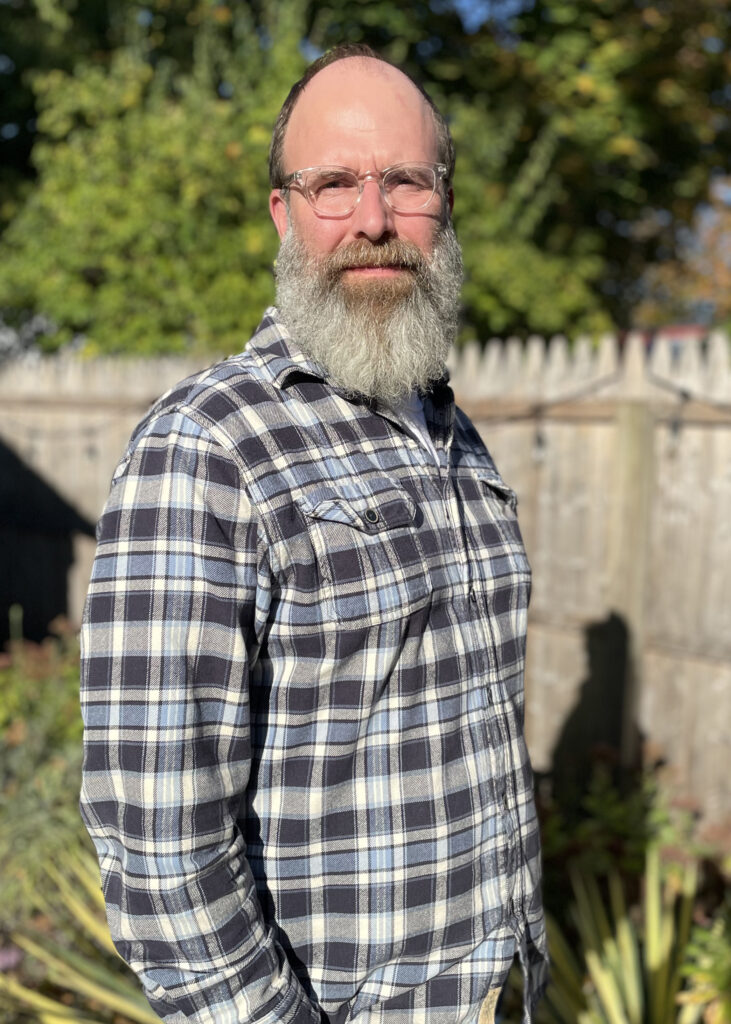
FDU: What are your areas of interest in the communication field?
Franklin Bridges: My Ph.D. is in media studies, which is closely tied to communication. My areas of interest within media studies are the political economy of independent music; the history and general topic of media technology; and visual communication, which is tied to my previous career as a graphic designer. Also, I have been looking at artificial intelligence and co-started a podcast over the summer called AI Music Lab.
FDU: How do you define success?
FB: From an academic standpoint, I think success is in the trying. There is always something to be learned when attempting anything — no matter the outcome. “Nothing ventured, nothing gained.”
FDU: What brought you to FDU?
FB: I started as a part-time lecturer three years ago at FDU teaching a course a semester in communication. When a position for a full-time lecturer opened up in the department, I was excited to apply.
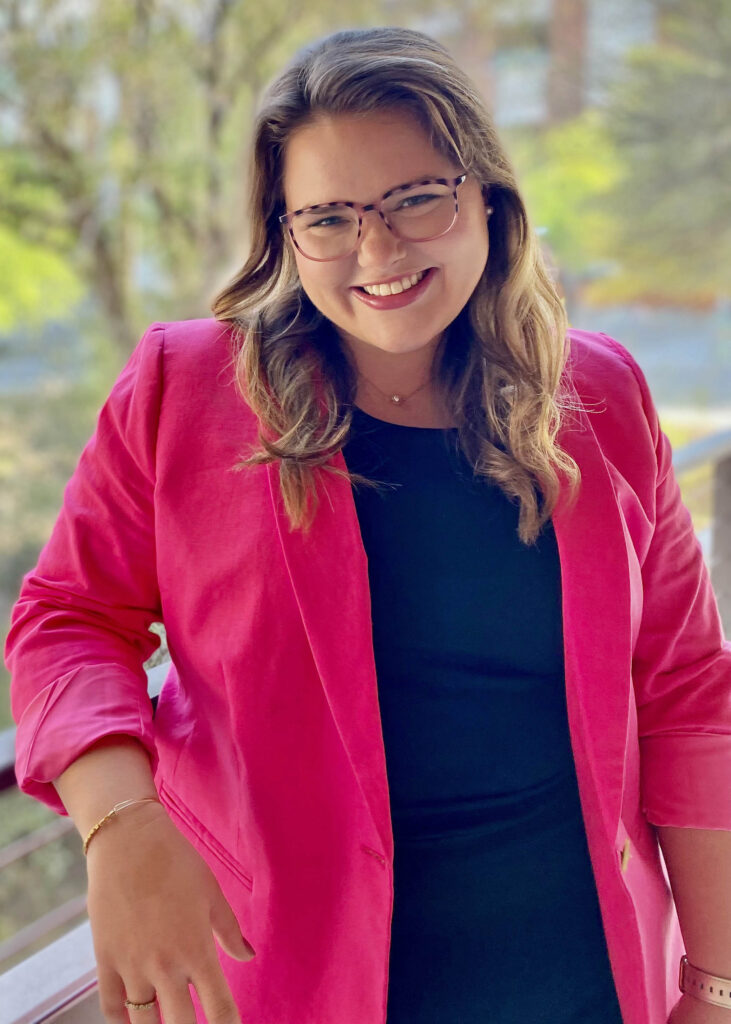
FDU: How does your research manifest in teaching rhetoric and composition?
Analeigh Horton: I specialize in multilingual and international student identity experiences with writing and literacy. I use my knowledge of supporting language development, intercultural competence, and sociocultural literacy theory to help students learn about different modes of written communication. I teach students about rhetorical awareness, genre awareness, and discourse communities so that they can develop a flexible skillset to communicate effectively in a range of academic, personal, and professional situations.
FDU: If you could live anywhere in the world, where would it be, and why?
AH: London, England. I spent a semester there during undergrad and it still has a hold on my heart. I love the pace of the city, history, and diverse culture as well as the access it provides to quaint British countryside and the continent. I’d also consider moving back to Madrid, Spain, where I used to live on a Fulbright fellowship.
FDU: What brought you to FDU?
AH: I attended a small liberal arts school for undergrad, and after six years at R1 universities, wanted to come back to invest in the same kind of community that gave me so many opportunities as a student. Plus, I’d never lived in this part of the country before, so I thought it’d be a fun new adventure! At FDU, I get to serve and teach Metro students as the Assistant Director of the Writing Program.
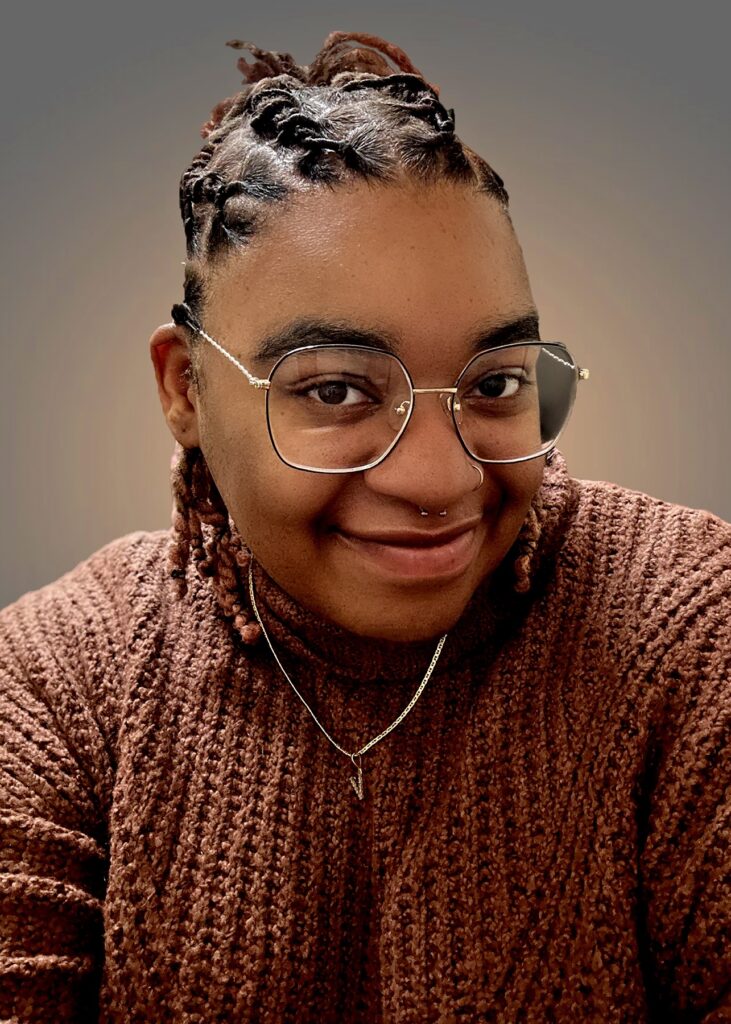
FDU: What kind of projects have you done as a freelance 3D artist and how do you apply this experience to your teaching?
Vaniah Howell: Some previous and current projects involve creating 3D models of lighthouses within the New York and New Jersey area that are 3D printed for use in museum exhibitions as miniatures. I use blueprints to create the 3D lighthouses and match their detail perfectly. In my classes, I try to emphasize time management, utilizing images to reference from (especially with bigger projects), while also speaking about the beauty of expressing their creativity through any projects. It can be daunting, but my students learn that with each project, they will always continue to grow in their experience and knowledge, and with trial and error, they will succeed no matter the obstacle.
FDU: What’s on your bucket list?
VH: My bucket list is expansive! I’d like to travel around Europe and Asia to visit the different museums and landmarks that make up the many countries. I also would like to learn another language. Other things on my bucket list include seeing the Northern Lights, growing my own garden of vegetables, and visiting a national/state park. Additionally, I have never been camping so I’d like to try it out (even though I dislike bugs).
FDU: What brought you to FDU?
VH: I’m an FDU alum and have my BA and MA in Animation. I love teaching 3D art and to return here to teach is such a rewarding experience! The beautiful Florham Campus is just a bonus. I hope each student who walks through my class doors can learn something new about 3D and leave with the passion that I currently have. Art is such a beautiful thing. To see the creativity my students have and present within their projects is a blessing for me.
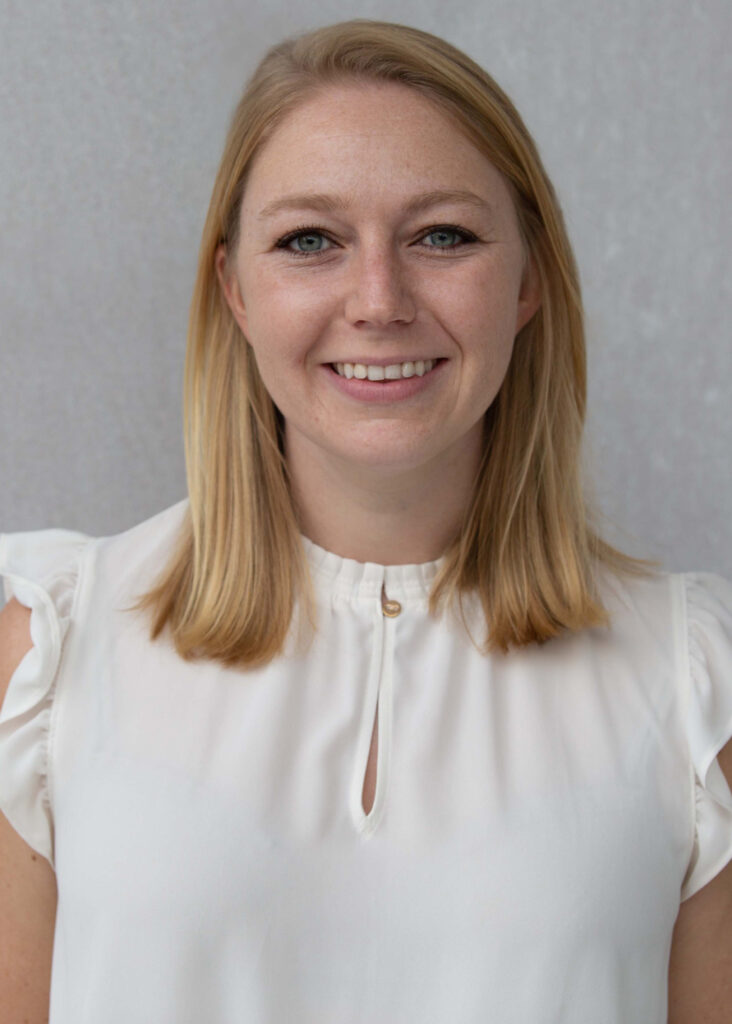
FDU: What is accessible writing? How can it be applied to an early university rhetoric and composition course?
Kathleen Lyons: Accessible writing asks writers to think critically about how an audience will engage with their work — is the language easy to understand? What senses are involved (or not)? Are there multiple entry points for people to make meaning? Questions about accessibility encourage writers to think about who is included in conversations, who is expected to participate, and how knowledge circulates through writing as a sensory experience.
Accessible writing encourages students to think about how their rhetorical choices impact the audience’s experience. My favorite part about teaching accessible writing is the moment when students start to reflect on their daily interactions. Students notice captions on TikTok and in their favorite TV shows. Students consider how other people consume their posts on social media. Students think about how information circulates on campus. Accessible writing is a widely transferable communication skill that students carry with them long after they leave the writing classroom.
FDU: Who is one person, dead or alive, that you wish you could meet? Why?
KL: My younger self would be so mad at me if I said anyone other than Mia Hamm. I grew up playing soccer and I’ve always been competitive. Mia Hamm changed expectations and perceptions of women’s sports. I still remember her Gatorade commercial with Michael Jordan where they went back and forth to the song, “Anything you can do, I can do better.” It was a really important moment of empowerment for me. If I met her now, I’d love to talk to her about confidence and her mindset going into a sports marketing space that was typically dominated by men. Mostly, I’d like to thank her for showing me how to be confident in spaces that have traditionally dismissed or silenced women. I carry the confidence and competitive spirit I learned from Mia Hamm (and many other women in my life) into my professional mindset today.
FDU: What brought you to FDU?
KL: First of all, I’m a Jersey girl! When I finished my PhD at the University of Delaware, I knew I wanted to come back to the Garden State. Mostly, I chose FDU because there is a strong disability community here. I’m excited to work with resources like the Regional Center for Learning Disabilities, COMPASS, the Office of Disability Support Services, and the many other programs that intersect with disability accessibility. Finally, when I came to visit FDU before accepting the position, I felt a strong commitment to inclusion among the students and faculty. It seems like a small detail, but people hold the door open for each other and they smile when you pass by. The foundation of kindness and inclusion brought me to FDU.
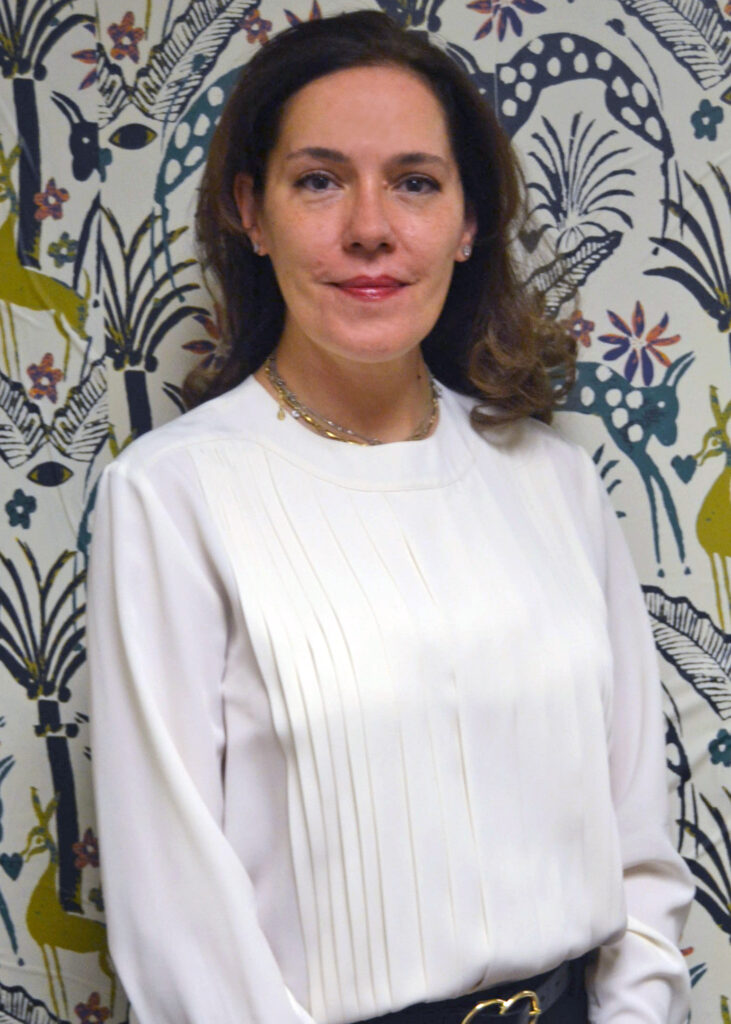
FDU: How does a sense of belonging affect the success and retention of first-generation students?
Eleni Mylonas: As a first-generation graduate, I can tell you firsthand how important it is. First-generation students may have a lower sense of belonging and social capital (access to resources, mentoring, and networking that first-gen students need to be prepared for college). A solid support system and a faculty and staff that students can identify with can increase their sense of belonging. The same goes for having stable and supportive peer relationships. All of these together allow for greater retention because the sense of belonging is amplified. When students feel seen and understood and are in an environment that supports them holistically, with an understanding that they may have additional responsibilities other than just being a student, they begin to feel that they are at the right institution. This speaks to meeting students where they are and understanding how their lived experiences of being “the first” in their families impacts who they are as scholars.
FDU: What makes you smile?
EM: My top three would be my dog, Jerry, my best friends, and my family.
FDU: What brought you to FDU?
EM: I came to FDU in 2011 as an adjunct, thanks to Irene Oujo, who suggested I look into working in higher education. Before that, I taught in K-12. Growing up in New Jersey, I was familiar with FDU and its reputation for putting students first and being very community focused. Having spent the last twelve years here as an adjunct and as an alumna, I have seen firsthand how transformational FDU truly is.
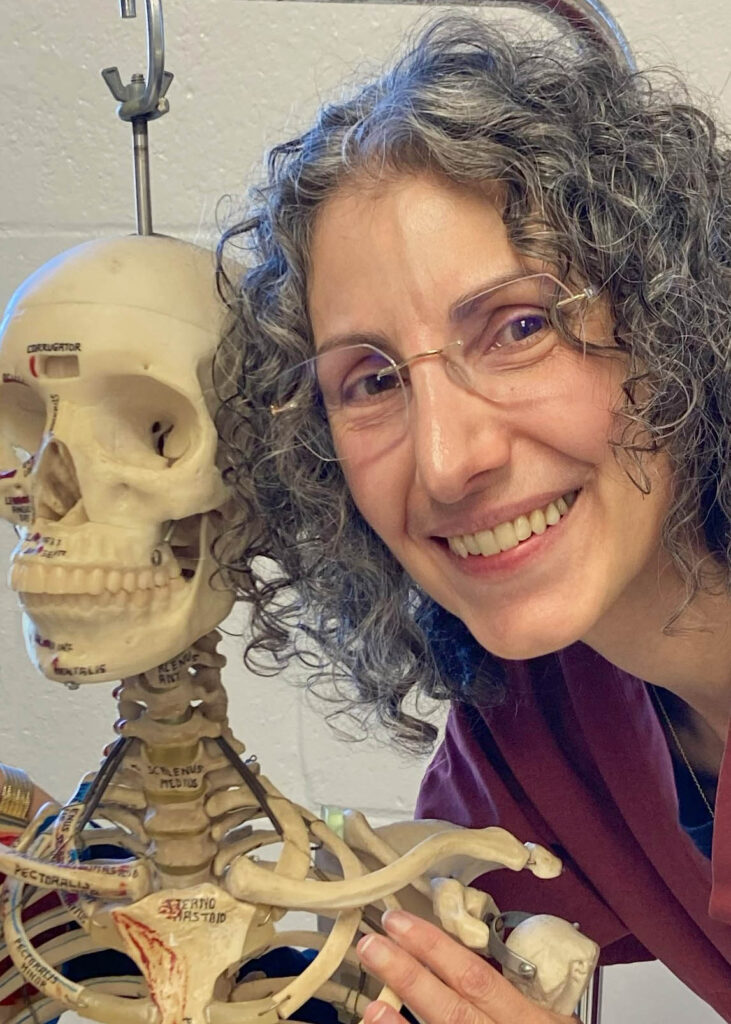 FDU: What advice do you have for students taking their first anatomy and physiology course?
FDU: What advice do you have for students taking their first anatomy and physiology course?
MaryAnn Spina: The amount of material in anatomy and physiology is MASSIVE — study smarter, not harder. Don’t cram. Study a little bit every day, even if it’s only for 10 minutes. Look at pictures because sometimes one good picture is worth 20 pages of notes. And don’t forget to ask your professors for suggestions on additional study guides, materials or videos — we’re happy to help!
FDU: If you could go back in time and change one thing, what would it be?
MS: I’m not sure what I would change, because I might not be here if I did change anything. However, if I could have a “redo,” it would be this — a colleague was supposed to go practice in Italy and changed his mind at the last minute. I should have been brave and offered to go in his place. How cool would that have been?
FDU: What brought you to FDU?
MS: I am an FDU graduate. A few years later while in private practice, I stopped by to say hello to my former professors. I’ve been here ever since!